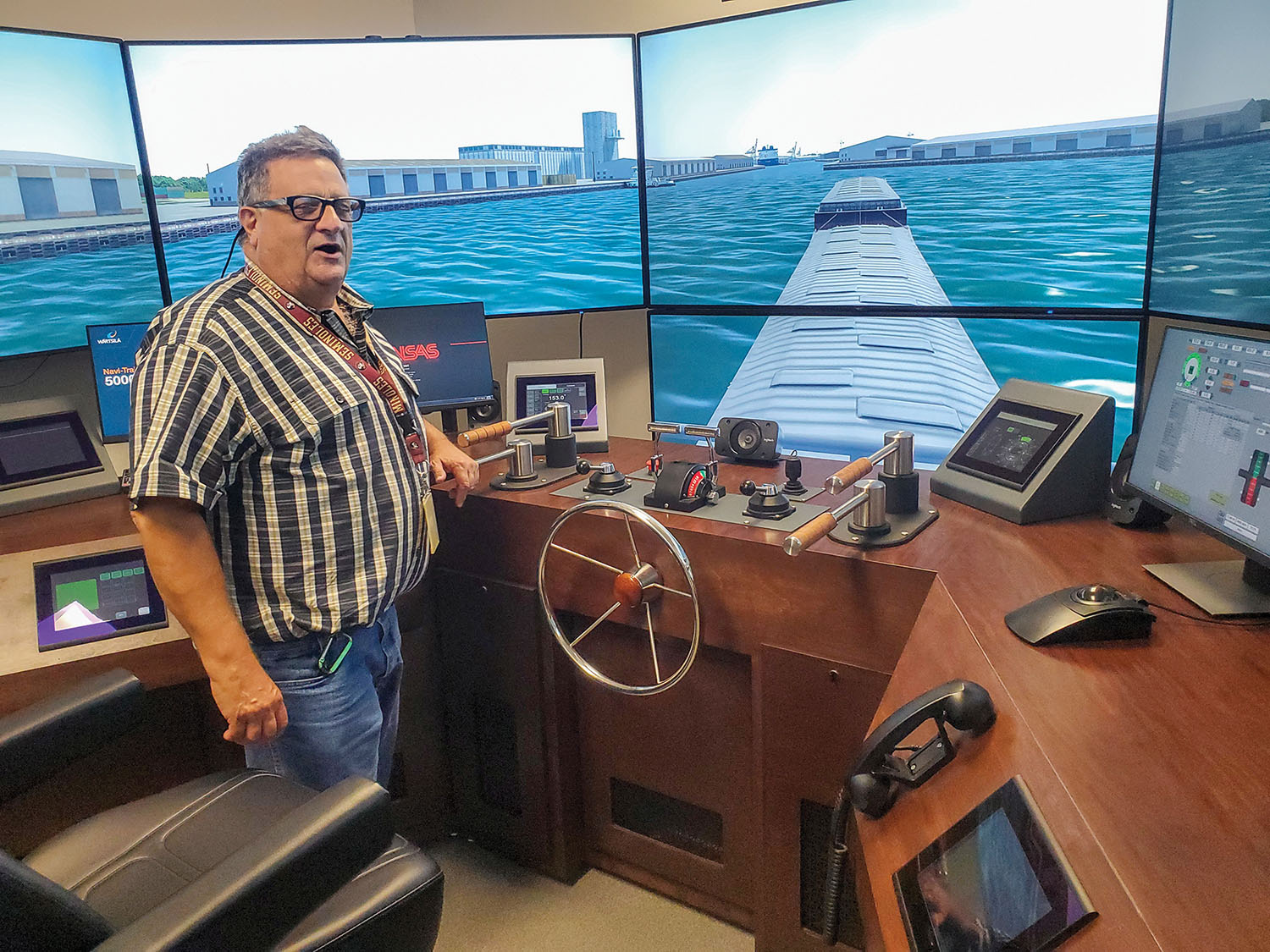Located on Louisiana’s north shore of Lake Pontchartrain, Northshore Technical Community College (NTCC) offers a Maritime Technology program that is designed to “provide students with foundational skills and competencies that will create and promote a sustainable employee base of individuals who are better prepared and trained for professional careers in the maritime industry.”
The two-year program offers a Certificate of Technical Studies in General Marine Transportation Technology, Technical Diploma in Maritime Technology or an Associate’s Degree in Applied Science in Maritime Technology.
“Our focus is to recruit high school graduates or military personnel who are transitioning to civilian life, but we also get a number of students who are in lower-paying jobs and want to make a better life for themselves and their families,” said Capt. Randy Savoie, lead maritime instructor. “Our objective is to make our students very attractive to maritime employers.”
Savoie has been with NTCC for five years and has 35 years of teaching experience with maritime schools in Louisiana’s technical college system. He began working on boats at age 13, crewing on his uncle’s shrimp boat. His experience includes working offshore on drilling rigs and platforms, crew boats and dredges and pushing barges on the inland waterways. He holds a 500-ton masters license.
The Certificate of Technical Studies includes a total of 22 credit hours of classes in Generators, Motors and Transformers (four credits), and three-credit courses in Seamanship, Marine Weather and Meteorology, Marine Hazardous Materials, Introduction to Marine Safety, Marine Electronic Navigation and Radar and Introduction to Maritime Transportation.
The Technical Diploma requires 24 additional credit hours, including Maritime Life, STCW-Basic Training, Basic Electricity, National Electrical Code, Basic Welding, Hydraulics and Public Speaking/Interpersonal Communication.
The STCW (Standards for Training, Certification and Watchkeeping) Basic Training class is conducted in collaboration with Delgado Community College and is Coast Guard approved.
Students can acquire an Associate’s Degree in Applied Science in Maritime Technology by furthering their college experience with general education college classes. Credits earned in the general education courses such as math, English composition, natural and behavioral sciences and humanities are transferrable to four-year college degrees through a partnership with four-year institutions called the University Transfer Pathway.
Northshore Technical College is certified by the Southern Association of Colleges and Schools. It is located in Lacombe, La., north of I-12 off the La. Hwy 434 exit., between Slidell and Covington.
“Many of the classes are taught at night to accommodate students who often hold full time jobs,” Savoie said. He is working to develop classes online so students can continue to matriculate, even while working on vessels. Students can take as many, or few, classes as they want to schedule each semester.
Included in classes are discussions of demurrage, terminal calls and lay times, topics many mariners are not exposed to while onboard. It opens up doors to work both on vessels and ashore.
Savoie said most of the students complete the two-year curriculum, but “there are several companies who actively recruit students before classes are completed. Starting as a deckhand at $200-$250 per day is very attractive to students earning minimum wages. That’s a week’s pay each day for some of them.”
The maritime school’s motto is “Building Futures.” It has been successful in opening the doors to maritime jobs and the stable, substantial pay it offers.
Caption for photo: Capt. Randy Savoie demonstrates the use of rudder sticks during a simulated transit of the upper Houston Ship Channel, using a Transas computer simulator at Northshore Technical Community College. (photo by Capt. Richard Eberhardt)
